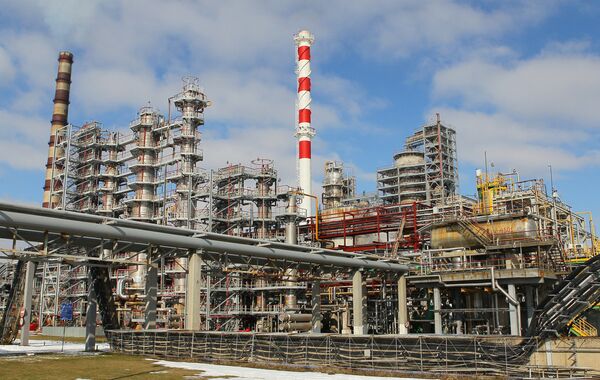MOSCOW, October 17 (RIA Novosti) - A "toxic triangle" of political inertia, financial short-termism and vested fossil fuel interests is stalling government efforts to shift away from fossil fuels putting some 400 million at risk of severe food and water shortages by 2060, Oxfam's latest briefing paper reported on Friday.
"This 'toxic triangle' of political inertia, financial short-termism and vested fossil fuel interests stands in the way of the transition needed," Oxfam's paper, Food, Fossil Fuels and Filthy Finance, said.
"Up to 400 million people across some of the world's poorest countries may face severe reductions in both water and food supplies by 2060 under a high-emissions scenario," the paper added.
According to the report, fossil fuels are the single biggest driver of climate change and should governments continue to avoid the issue, global warming could cause a four to six temperature rise by the end of the century. As a result, developing countries would greatly struggle with resources and be left to deal with three to 25 million more malnourished children.
The Oxfam report also claims the failure of switching to a low-carbon future could threaten the economy and businesses of both rich and poor countries since climate change will likely cause costly property damages, agricultural problems, and reduce labor productivity.
"Governments globally could tip the balance in favor of a low-carbon future and send the right signals to unleash the finance for this transition through committing to phase out fossil fuel emissions by early in the second half of this century," the report said.
Governments have the potential to avoid a critical situation if they stop investing in fossil fuels and show the world fossil fuels are not here to stay. The report urges rich countries to act quickly in a transition to low-carbon technologies a change leading to lower costs, cleaner energy, and the beginning of a lucrative economy built on decreasing emissions.
According to Oxfam, poorer developing countries will inevitably take more time to make the shift, but should begin to seize available low-carbon opportunities and receive support to do so from wealthier countries.


